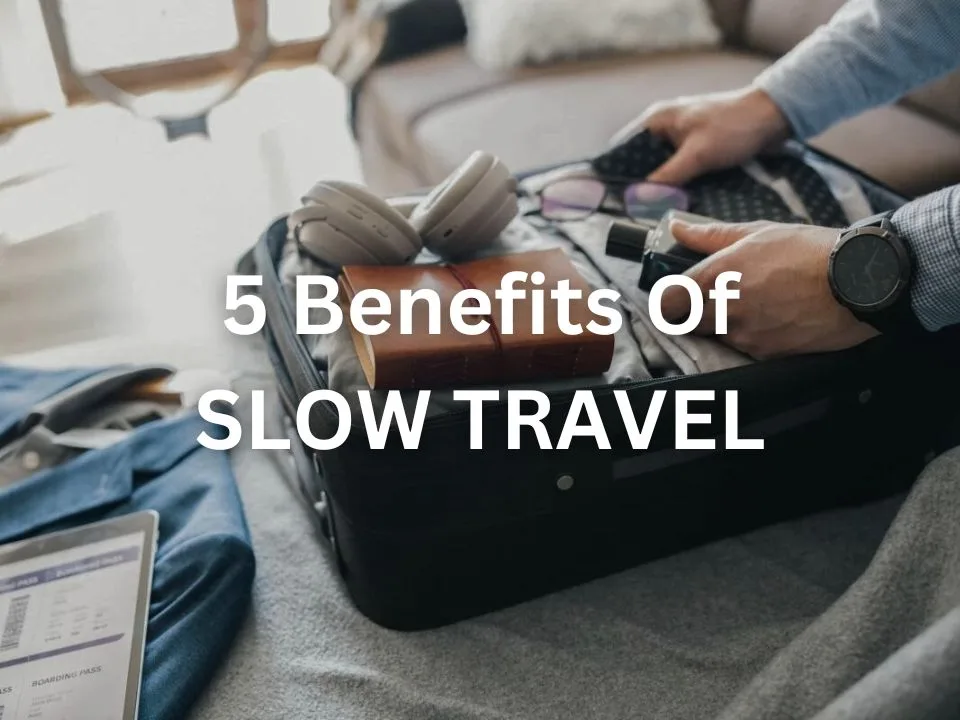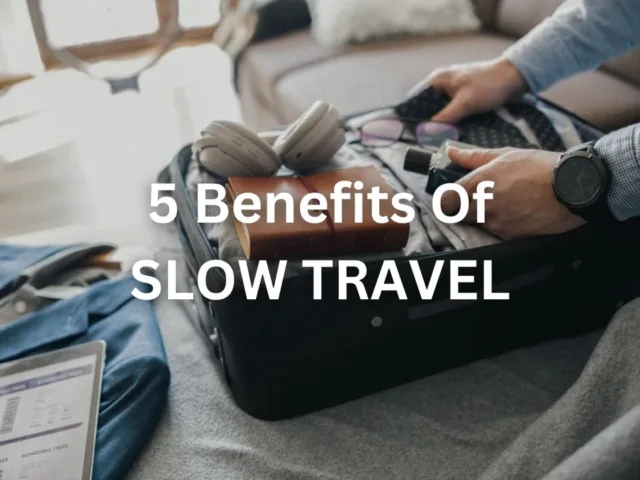
The concept of slow travel offers a refreshing alternative to traditional tourism. By prioritizing quality over quantity, slow travel encourages a more meaningful and sustainable approach to exploring new destinations. Let’s delve into the numerous benefits of embracing this travel philosophy.
5 Benefits Of Slow Travel
1. Deeper Cultural Immersion
One of the most significant benefits of slow travel is the opportunity for genuine cultural immersion. By spending more time in one place, travelers can:
- Learn the Local Language: Engage in language classes or practice with locals to gain a better understanding of the culture and improve communication.
- Participate in Community Activities: Join local festivals, workshops, or volunteer projects to experience the community’s way of life firsthand.
- Understand Traditions: Take the time to learn about local customs, traditions, and history, gaining insights that go beyond the typical tourist experience.
2. Reduced Environmental Impact
Slow travel promotes a more sustainable approach to tourism by encouraging:
- Eco-Friendly Transportation: Opt for trains, buses, cycling, or walking instead of flying, which significantly reduces carbon emissions.
- Longer Stays: Reducing the number of transitions between destinations helps minimize the environmental impact of frequent travel.
- Supporting Local Economies: Choosing locally-owned accommodations and businesses supports the local economy and encourages sustainable tourism practices.
3. Enhanced Personal Well-being
Traveling at a slower pace can have numerous benefits for personal well-being, including:
- Reduced Stress and Fatigue: Avoid the exhaustion that comes with packed itineraries and constant movement. Slow travel allows for a more relaxed and rejuvenating experience.
- Mindful Exploration: Take the time to savor moments, enjoy local cuisine, and explore at a leisurely pace, leading to a more fulfilling travel experience.
- Spontaneity and Flexibility: With fewer time constraints, travelers can embrace spontaneity, discovering hidden gems and enjoying unplanned adventures.
4. Meaningful Connections
Slow travel fosters meaningful connections with people and places:
- Building Relationships: Spend time getting to know locals, forming friendships, and learning from their perspectives.
- In-Depth Exploration: Discover lesser-known attractions, local hangouts, and off-the-beaten-path sites that are often overlooked in fast-paced travel.
- Personal Growth: Engage in new experiences that challenge and enrich personal understanding, contributing to personal development and growth.
5. Cost-Effectiveness
Slow travel can also be more cost-effective in several ways:
- Accommodation Savings: Longer stays often come with discounts on accommodation, and staying in one place can reduce overall lodging costs.
- Reduced Transportation Costs: By traveling less frequently between destinations, travelers save on transportation expenses.
- Cooking Meals: With more time in one place, travelers can shop at local markets and cook their own meals, saving money on dining out.
Slow travel is not just a way to travel; it’s a philosophy that encourages deeper engagement, sustainability, and personal enrichment. By adopting a slow travel approach, travelers can enjoy a more authentic, mindful, and fulfilling experience, while also contributing positively to the communities and environments they visit.
Whether it’s through cultural immersion, reduced environmental impact, enhanced well-being, meaningful connections, or cost savings, the benefits of slow travel make it a compelling choice for the modern traveler seeking more than just a superficial glance at the world. Learn on how to start your slow travel here.










